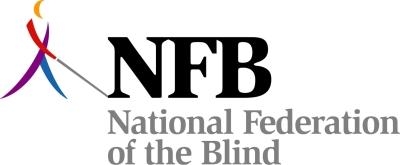Fri, Jan 24, 2014
Regulations On Access To Kiosks Violate Federal Law, Organization Says
The National Federation of the Blind (NFB) has filed suit in the United States District Court for the District of Columbia against the United States Department of Transportation (DOT). The suit challenges regulations, issued by the DOT under the Air Carrier Access Act (ACAA), which purport to require that airline check-in kiosks be made accessible to airline passengers who are blind.

The regulations, which took effect on December 12, 2013, require only 25 percent of airport check-in kiosks to be accessible to blind passengers by ten years from that date. The NFB maintains that this requirement fails to implement the ACAA as Congress intended. The ACAA prohibits discrimination against passengers with disabilities by airlines. The legislative record shows that when it passed the law, Congress intended that the only permissible restrictions on access to air travel would be directly related to the safety of all passengers. Among other things, by allowing continued discrimination against the blind by the airlines on a matter not related to safety, the agency violated the law, the suit claims.
Kiosks can be made accessible to the blind in the same way that ATMs and other customer service devices (such as ticket-purchasing kiosks used by Amtrak and other transit agencies) are already made accessible: by affixing Braille labels, installing headphone jacks, and adding speech software that provides audio prompts to the user. The NFB's president, Dr. Marc Maurer, and director of advocacy and policy, Anil Lewis, both of whom are blind and fly frequently on organization business, are also named as plaintiffs. "The technology to make airline check-in kiosks accessible to blind people is readily available; similar technology is already deployed on ATMs, other kiosks, and similar devices nationwide, and has been for many years," said Dr. Maurer. "Yet the Department of Transportation violated the law by allowing continued discrimination against blind passengers based on spurious assertions by the airline industry that making kiosks accessible will cost too much and take a decade.
"Furthermore, the regulations will only require 25 percent of these kiosks to be made accessible; apparently 75 percent discrimination against blind people is acceptable to the DOT. The agency also failed to make the information it gathered from airlines available until these regulations were issued, which also violated federal law and denied blind Americans the opportunity to challenge the airlines' assertions. We are therefore asking the court to strike down the regulations and order the agency to restart the rulemaking process."
More News
"The owners envisioned something modern and distinctive, yet deeply meaningful. We collaborated closely to refine the flag design so it complemented the aircraft’s contours w>[...]
Nonradar Arrival An aircraft arriving at an airport without radar service or at an airport served by a radar facility and radar contact has not been established or has been termina>[...]
From 2022 (YouTube Edition): Still Life with Verve David Uhl was born into a family of engineers and artists—a backdrop conducive to his gleaning a keen appreciation for the >[...]
Also: Electra Goes Military, Miami Air Taxi, Hypersonics Lab, MagniX HeliStrom Amazon’s Prime Air drones are back in the spotlight after one of its newest MK30 delivery drone>[...]
Also: Trailblazing Aviator Betty Stewart, Wind Farm Scrutiny, Chatham Ban Overturned, Airbus Shares Dive A Thunderbird pilot, ID'ed alternately as Thunderbird 5 or Thunderbird 6, (>[...]
 Aero-News: Quote of the Day (12.11.25)
Aero-News: Quote of the Day (12.11.25) ANN's Daily Aero-Term (12.11.25): Nonradar Arrival
ANN's Daily Aero-Term (12.11.25): Nonradar Arrival Classic Aero-TV: David Uhl and the Lofty Art of Aircraft Portraiture
Classic Aero-TV: David Uhl and the Lofty Art of Aircraft Portraiture Airborne-NextGen 12.09.25: Amazon Crash, China Rocket Accident, UAV Black Hawk
Airborne-NextGen 12.09.25: Amazon Crash, China Rocket Accident, UAV Black Hawk Airborne 12.05.25: Thunderbird Ejects, Lost Air india 737, Dynon Update
Airborne 12.05.25: Thunderbird Ejects, Lost Air india 737, Dynon Update



